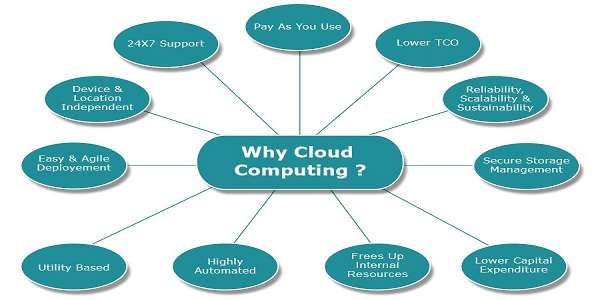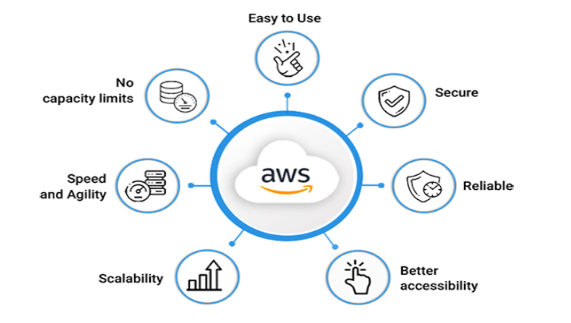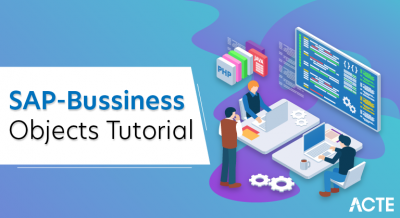
- What is Cloud Computing?
- Why Cloud Computing?
- Various Cloud Providers
- What is AWS?
- Why is AWS?
- AWS Services
- Monitoring and Management on AWS
- AWS Pricing
- AWS Best Practices
- Hands-on: Creating an AWS Account
- Learning Resources in Aws
- Conclusion
What is Cloud Computing?
With cloud computing, you can rent as many servers as you like from your cloud provider; the company will bill you according to the time you spend using the servers. For instance, if you’re utilizing AWS Machine Learning services, you can spin up instances as needed and only pay for the hours you use. There are no obligations; if you use a server for an hour, you will only be billed for that hour. By configuring redundancy in your servers, that is, setting up multiple copies of your servers in various data centers, you can ensure that your application will always be highly available, even if one of your servers fails. Your application will continue to function from any of the deployed servers. For more details, check out this AWS Tutorial.
Looking to earn your AWS Professional certification? Take a look at the AWS Certification Course offered by ACTE today!
Why Cloud Computing?
Assume for a moment that you are creating an app similar to Instagram. You’ve prepared this program on your computer now. Putting this online will allow visitors to browse and visit this website.

Various Cloud Providers
Numerous businesses offer cloud services. The following are the top three businesses in terms of market share:
- AWS offers a full gamut of services, including compute options such as Amazon EC2 for scalable virtual servers, AWS Lambda for serverless computing, robust storage solutions through the services of Amazon S3 and Amazon EBS, and managed database services like Amazon RDS and DynamoDB. Its networking capabilities include Amazon VPC for creating isolated networks and AWS Direct Connect for dedicated connections.
- Microsoft Azure provides a range of services for building, running, and managing applications globally. Scalable resources are available through Azure Virtual Machines, and serverless applications can be created with Azure Functions. For IoT device management, Azure IoT Hub offers solutions for seamless communication and data exchange. Azure Blob Storage and Azure Files address all kinds of unstructured data needs, and Azure SQL Database and Azure Cosmos DB address all kinds of database needs. Networking services add an edge to connectivity with Azure Virtual Network and Azure ExpressRoute.
- The Google Cloud Platform provides developers and enterprises with robust and powerful cloud solutions. Therefore, Google Compute Engine is scalable virtual machines and cloud functions directly supporting serverless architectures. Also, Google Cloud Storage is durable and secure object storage; databases such as Cloud SQL and Cloud Firestore can be used for relational and NoSQL data, respectively.
What is AWS?
Considering that Microsoft Azure, the second-largest cloud provider, only holds about 16 per cent of the market, AWS alone commands a whopping 40 per cent stake. AWS is more dependable than Google and Microsoft. The conclusion was drawn from the total downtime over the previous four years. When it comes to cloud outages, AWS has had fewer than Google Cloud and Microsoft Azure. Since its initial release in 2006, AWS has experienced significant advancements. Considering these details, any new business that joins the cloud space always seems.
Why is AWS?

To achieve your AWS certification, gain knowledge from top AWS experts and enhance your career with ACTE’s AWS Certification Course .
Aws services
AWS provides more than 100 services. To simplify understanding, we will only cover the most crucial services you would use daily as an AWS Engineer. We have broken up this AWStutorial into the following domains to facilitate learning:
- App Integration
- Security Management
- Database Compute and Engagement
- AWS tutorial Processing
Amazon EC2
With AWS EC2 (Elastic Compute Cloud), you can get a server with the operating system, processor, and RAM you want. This flexibility allows you to host a website, install software, and more, giving you complete control of the OS. Additionally, EC2 is well-suited for deploying Cloud Native Microservices, enabling you to build scalable and efficient applications.
Flexible Beanstalk
One PaaS product from AWS that can assist you with website hosting is called Elastic Beanstalk. As it’s a Platform as a Service, the entire operating system is unavailable. You receive a dashboard, which allows you to upload your website. In a technical sense, it’s an EC2 service with the necessary software pre-installed and no access to the operating system.
Lambda on AWS
Amazon Lambda is Another Platform as a Service offered by AWS. Furthermore, you cannot host a website with this service, nor do you get full access to the OS. It is limited to backend processing alone. With the dashboard provided by this service, you may upload your backend code. Its only responsibility is to accept the request.
AWS Configuration AWS Management
AWS CloudFormation enables you to construct various AWS resources with just one click. Businesses and individuals can quickly and easily create a vast architecture using this tool!
Amazon OpsWorks
Using Chef and Puppet, AWS OpsWorks is a configuration management service that helps you manage and configure AWS servers. It allows you to set up servers on-site and Amazon EC2 instances. For organizations looking to analyze large datasets, integrating with an Azure Data Warehouse can complement your infrastructure by providing robust data storage and analytics capabilities.
CloudTrail on AWS
One of AWS’s logging services is CloudTrail. It offers the full event history of all actions pertaining to AWS accounts and supports governance, compliance monitoring, and auditing.
CloudWatch on AWS
You can monitor the resources in your AWS account using the monitoring service AWS CloudWatch. Additionally, you may set up alerts and define what to do on AWS once an abnormality arises.
Eager to master cloud computing? Take a look at the Cloud Computing Master Program offered by ACTE today!
Monitoring and Management on Aws
Amazon CloudWatch: CloudWatch monitors AWS resources and applications, such as logs and metrics.
- Configuring CloudWatch Alarms
- On the AWS Console, navigate to CloudWatch.
- Click Alarms, Create Alarm.
- Select a metric to track-for example, CPU utilization.
- Customize conditions and actions for the alarm.
- Activating CloudTrail
- On the AWS Console, navigate to CloudTrail.
- Click Create trail.
- Customize such settings as storage location and logging options.
- Review and prepare the trail.
- Pay-as-you-go: With AWS, you only pay for the services or servers you use. For example, if you start multiple servers or services and use them for 1.5 hours, you will only be paid for 1.5 hours, neither more nor less. Server setup determines the pricing, starting at as low as US$0.0047 per hour!
- When making a reservation save: You can reduce your AWS expenses by up to 70% if you commit to a machine for a specific period! For example, if you need a server for at least two years, reserving it can lead to significant savings. Similarly, if you’re exploring cloud services, consider an Azure Tutorial to learn how to optimize costs across multiple platforms, including AWS and Azure.
- Architecture Best Practices:Leverage redundancy and backup strategies. Leverage Managed Services fully managed services from AWS to limit operations overhead. Implement Automation for Deployments Leverage AWS CloudFormation for infrastructure as code.
- Security Best Practices: Periodically Review Permissions. Validate IAM policies and permissions in the context of security. Leverage Security Groups Implement fine-grained access controls over network traffic.
- Step 1: Create an AWS account by entering your credit or debit card details. To authenticate your card, ₹2 will be subtracted.
- Step 2: Choose the one you want from the Developer, Business, and Basic plans. With some restrictions, the Basic plan is free for a full year. The monthly expenses for the Developer plan are US$29, while the Business plan is US$100.
- Step 3: You will now be able to access the AWS Management Console. All you need to do is figure out how to use the services.
AWS CloudTrail: CloudTrail tracks user activity and API usage across all AWS services.
AWS Pricing
AWS Best Practices
Hands-on: Creating an AWS Account
Starting to work with AWS is extremely easy. There are easy steps to begin. The rest of this post will guide you through the simple steps of opening an AWS account and logging into the AWS Management Console.
Preparing for an AWS job interview? Explore our comprehensive collection of AWS Interview Questions to help you get ready!
Learning Resources in Aws
There are many excellent learning resources to help you improve your skills and knowledge about AWS. AWS Training and Certification offers a variety of free and paid courses, ranging from foundational concepts to more advanced topics and certifications that validate your expertise. The AWS Documentation provides in-depth information on all AWS services, best practices, and tutorials. AWS Online Tech Talks offer live and on-demand sessions with AWS experts on the latest features and use cases. For real-time data processing, integrating Azure Stream Analytics can enhance your capabilities alongside AWS offerings. Online courses available on Coursera, Udemy, and LinkedIn Learning cover material on AWS that has been curated to accommodate distinct skill levels. Third, participation in the AWS Community through forums, meetups, and social media networks might help learners gain practical insights and network with fellow learners and professionals. Together, these sources make a rich learning path for whoever will seek mastery of AWS.
Conclusion
In this AWS tutorial , we will understand all the basic fundamentals and services offered through Amazon Web Services, one of the top cloud computing services. We will start with an overview of what cloud computing actually is and all its benefits, such as scalability, flexibility, and cost-effectiveness.






